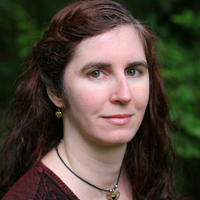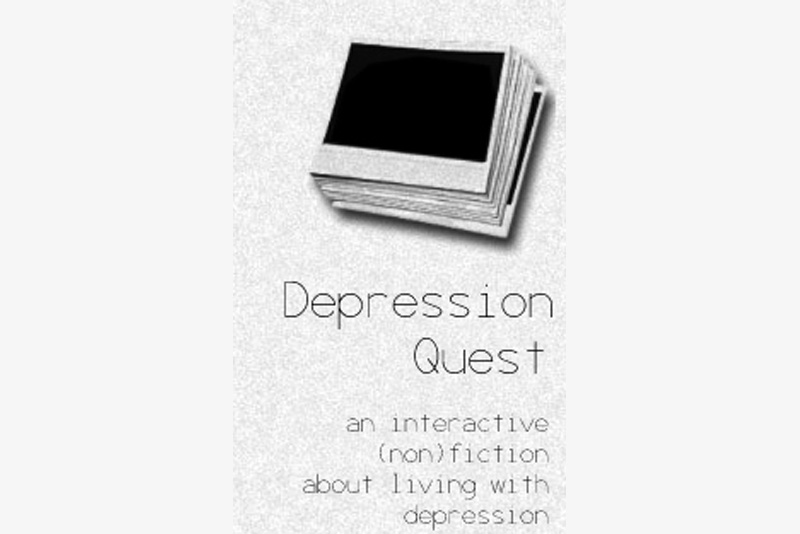The Witcher

A dark fantasy RPG based on a long-running Polish fantasy series, "The Witcher" has some interesting ideas in some fields, but falls back on genre standards with others.
"The Witcher" is an RPG set in a 15th-century fantasy world. The player takes the role of Geralt of Rivia, the titular "Witcher". The Witchers are an order of secretive monster-hunters who modify their bodies with magic and potions, but are now dying off and becoming obsolete. Geralt is also an amnesiac, so naturally his story deals with a combination of finding out his past and dealing with increasing prejudice against "his kind". The story has several important branches in it, generally dealing with whether Geralt sides with "regular humans" or the persecuted demi-humans, such as elves and dwarves.
A lot of the gameplay is standard RPG fare: you kill monsters, harvest body parts, and turn them in for sidequests. The combat system is a combination of melee and spell-casting. The melee is a sort of timed auto-attack: the player clicks when a prompt appears to continue a chain of attacks, so it's not really "interactive" but there's some player involvement. In addition, with some weapons Geralt can switch between different styles (strong, fast, and group) depending on what kind of enemy he's facing. The spells are pretty simple, too, but there's more choice about what spells to use and so on. It's generally stuff like telekinetic shoves or fire blasts or what have you. It's not exactly exciting, but it's better than nothing.
The "RPG" elements of the game provide meatier content. Geralt can improve his base stats (strength, intelligence, agility, and so on), his spells (adding new effects and powers), and his fighting styles for "steel" and "silver" (steel being anti-human, silver being anti-monster). This provides more customization than the combat alone does. The development trees are kind of limited to start with, but as the game progresses more pathways open up and the player can't follow all of them.
One of the parts of the game that's pretty neat on its own is resource collection and alchemy. The list of potions is pretty huge, and it ties into Geralt's role as a Witcher since many potions require monster-based components (in addition to more common herbs). Hence, it feels like there's more of a purpose to harvesting livers and eyeballs and so on apart from "giving it to some guy". It's not particularly complex, and it still basically boils down to "right-click their corpses", but it's at least something to work with.
The main thing about the Witcher is that it's kind of mediocre. It doesn't really have a hook. The combat is average, the dialogue and story are average, the graphics are average, and so on. They're definitely not bad, it's just that there's nothing particular to recommend about it. It's a decent fantasy game, but I couldn't find a single thing to be excited about or go "yes, this was worth the purchase". Even the "sex scenes" (trumped up as a pretty major feature) are basically normal sidequests that end in short dialogues and, sometimes, a brief cutscene that depicts pretty much nothing. One such sidequest consisted of a woman asking for flowers, me giving her flowers, and then her deciding to have sex with me. Then I basically got a message reading "you had sex" and that was it.
Overall, the Witcher is functional, and RPG fans may enjoy it, but it's just not that great. There's nothing to make non-RPG players get invested or involved, nor is there anything to really distinguish it. It's generic fantasy with generic gameplay and generic designs.
Rating: 6/10.
Purchased through Steam with our own funds.
"The Witcher" is an RPG set in a 15th-century fantasy world. The player takes the role of Geralt of Rivia, the titular "Witcher". The Witchers are an order of secretive monster-hunters who modify their bodies with magic and potions, but are now dying off and becoming obsolete. Geralt is also an amnesiac, so naturally his story deals with a combination of finding out his past and dealing with increasing prejudice against "his kind". The story has several important branches in it, generally dealing with whether Geralt sides with "regular humans" or the persecuted demi-humans, such as elves and dwarves.
A lot of the gameplay is standard RPG fare: you kill monsters, harvest body parts, and turn them in for sidequests. The combat system is a combination of melee and spell-casting. The melee is a sort of timed auto-attack: the player clicks when a prompt appears to continue a chain of attacks, so it's not really "interactive" but there's some player involvement. In addition, with some weapons Geralt can switch between different styles (strong, fast, and group) depending on what kind of enemy he's facing. The spells are pretty simple, too, but there's more choice about what spells to use and so on. It's generally stuff like telekinetic shoves or fire blasts or what have you. It's not exactly exciting, but it's better than nothing.
The "RPG" elements of the game provide meatier content. Geralt can improve his base stats (strength, intelligence, agility, and so on), his spells (adding new effects and powers), and his fighting styles for "steel" and "silver" (steel being anti-human, silver being anti-monster). This provides more customization than the combat alone does. The development trees are kind of limited to start with, but as the game progresses more pathways open up and the player can't follow all of them.
One of the parts of the game that's pretty neat on its own is resource collection and alchemy. The list of potions is pretty huge, and it ties into Geralt's role as a Witcher since many potions require monster-based components (in addition to more common herbs). Hence, it feels like there's more of a purpose to harvesting livers and eyeballs and so on apart from "giving it to some guy". It's not particularly complex, and it still basically boils down to "right-click their corpses", but it's at least something to work with.
The main thing about the Witcher is that it's kind of mediocre. It doesn't really have a hook. The combat is average, the dialogue and story are average, the graphics are average, and so on. They're definitely not bad, it's just that there's nothing particular to recommend about it. It's a decent fantasy game, but I couldn't find a single thing to be excited about or go "yes, this was worth the purchase". Even the "sex scenes" (trumped up as a pretty major feature) are basically normal sidequests that end in short dialogues and, sometimes, a brief cutscene that depicts pretty much nothing. One such sidequest consisted of a woman asking for flowers, me giving her flowers, and then her deciding to have sex with me. Then I basically got a message reading "you had sex" and that was it.
Overall, the Witcher is functional, and RPG fans may enjoy it, but it's just not that great. There's nothing to make non-RPG players get invested or involved, nor is there anything to really distinguish it. It's generic fantasy with generic gameplay and generic designs.
Rating: 6/10.
Purchased through Steam with our own funds.

Related Articles
Editor's Picks Articles
Top Ten Articles
Previous Features
Site Map
Follow @lisavideogames
Tweet
Content copyright © 2023 by James Shea. All rights reserved.
This content was written by James Shea. If you wish to use this content in any manner, you need written permission. Contact Lisa Shea for details.



